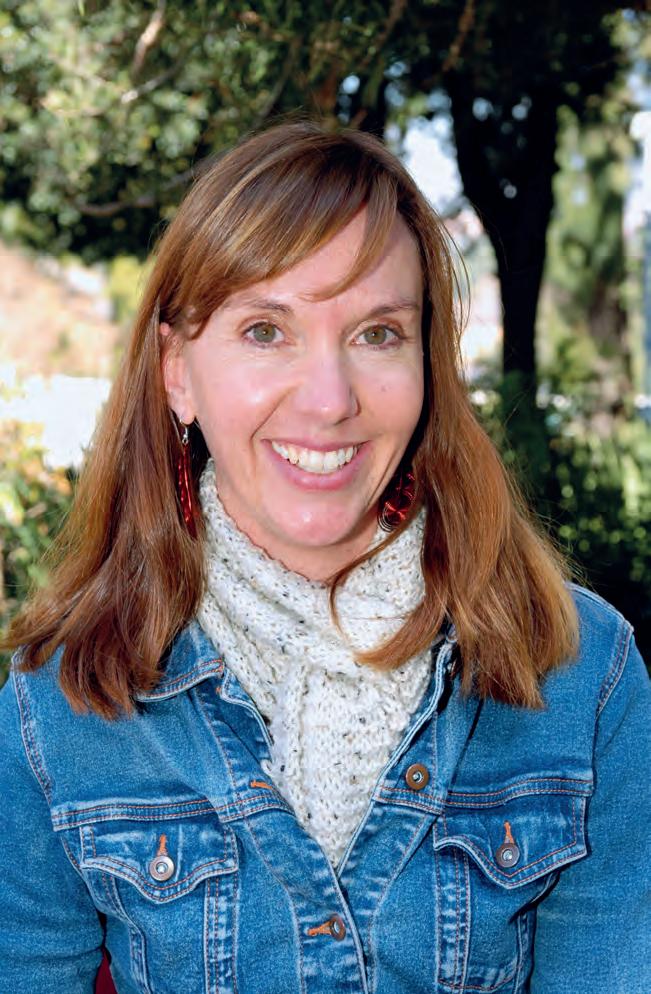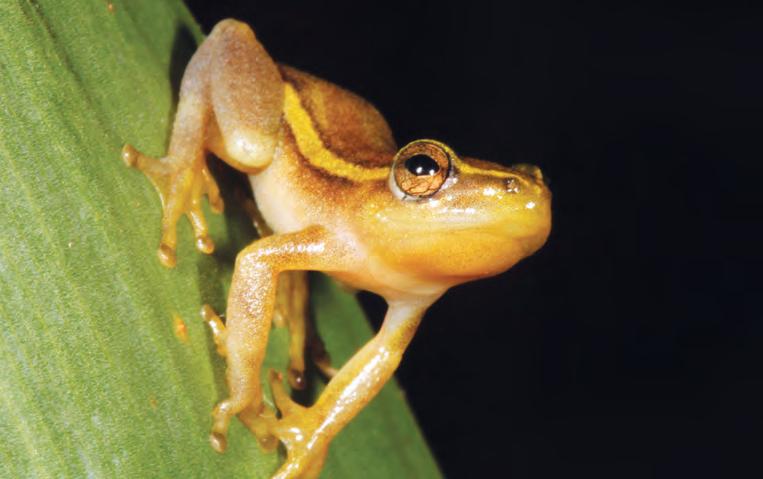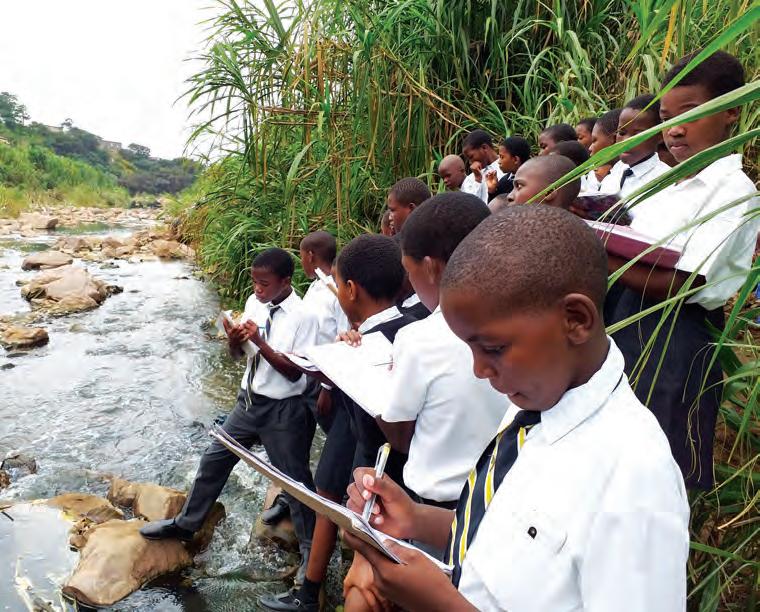
3 minute read
The FROG Lady
from The Crest 95
HILLCREST’S JEANNE
TARRANT JUST WON THE PRESTIGIOUS WHITLEY AWARDS – A GIANT LEAP FOR SOUTH AFRICA’S AMPHIBIAN CONSERVATION, WRITES
Advertisement
KATRINE ANKER-NILSSEN
Since the 1980s amphibians have suffered global population declines, more than any other taxonomic group over the last few millennia. Currently 41% of the world’s frogs, toads, newts, salamanders and caecilians are at risk of extinction. In South Africa, 18% of amphibians are classified as Threatened or Data Deficient. Almost two-thirds of the country’s 135 frog species are found nowhere else, making South Africa a priority for the conservation of this overlooked group.
Dr Jeanne Tarrant grew up in Underberg and attended Howick High and Rhodes University, before completing her MSc and PhD at North West University. “Following my PhD in 2012, I continued with a post-doctoral fellowship and at the same time joined the Endangered Wildlife Trust – starting the Threatened Amphibian Programme (TAP),” says Jeanne.
“The first project I secured funding for was the Amathole Toad in the
HOW CAN YOU HELP? • Learn more about the frogs in your area. • Start appreciating the role of frogs in the environment. • Attract frogs to your garden by having indigenous plants and consider a small pond. • Don’t buy frogs as pets or as food. • Don’t run over frogs – look out for them on rainy nights. • Don’t use pesticides or herbicides in your garden. • Don’t use harmful chemicals in your home. • Consider where your food came from and how it got there. • Donate to the EWT Threatened Amphibian Programme.
Eastern Cape, following the rediscovery of this species in 2011 – after a 13 year absence of records.” Today TAP continue the work on this species by working with landowners to secure grassland habitat. “Much of my work over the past 10 years has also focused on the KZN coast’s Pickersgill’s Reed Frog,” adds Jeanne. “At the start of this research the species was Critically Endangered and known from just eight sites, many of which we found to no longer exist as a result of habitat destruction. Today, through continued surveys and a much better understanding of the habitat


requirements, we know of the species at 38 sites, and its threat status has been downgraded to Endangered.”
TAP is the only NGO programme in southern Africa focused on frog conservation – working to fill vital knowledge gaps and address the threats facing amphibians in South Africa. Jeanne is affectionately known as the “Frog Lady”, and with her team aims to elevate public awareness and change negative attitudes by highlighting the importance of amphibians.
“Frogs really are fascinating! They have been around for hundreds of millions of years, survived the extinction
LEFT: Frog Lady Jeanne Tarrant. TOP: Community education through a school wetland excursion. ABOVE: The beautiful Pickersgill’s Reed Frog is only 2cm long.
of the dinosaurs and evolved to occupy just about every corner of the earth. It is these adaptations that make them such an interesting and diverse group of creatures,” says Jeanne. “From species that carry their tadpoles on their backs to make sure they reach water to complete development, and those that can spend months if not years on end underground until rains return, to those that survive freezing temperatures or

WITHOUT FROGS WE ALL CROAK
A great little slogan that one of Jeanne’s students, Mea Trenor, and her husband Jonathan came up with. “We have it as a bumper sticker, and it’s a great conversation starter,” laughs Jeanne. “The phrase reminds us that we are all linked and that with frogs disappearing, we too as humans are at risk.”
dwell in deserts – they represent just about every habitat niche available. Frogs are colourful, each species has its own unique call by which we can identify them, and they mostly are active at night – making them even more curious.”
Today this amazing group is experiencing population declines across almost half its approximately 8 000 species worldwide, mostly as a result of loss of habitat and pollution of freshwater systems. “This is happening on our watch, and it’s our responsibility to take note and change behaviours to stem the tide of extinctions,” says Jeanne.
The Whitley Awards, also known as the “Green Oscars”, are annual awards given to six individuals from the southern hemisphere by UK-based conservation charity the Whitley Fund for Nature, and celebrate passionate conservationists who do amazing work in their home countries to protect the natural world and its wildlife.
“The winning of the 2020 Whitley »










